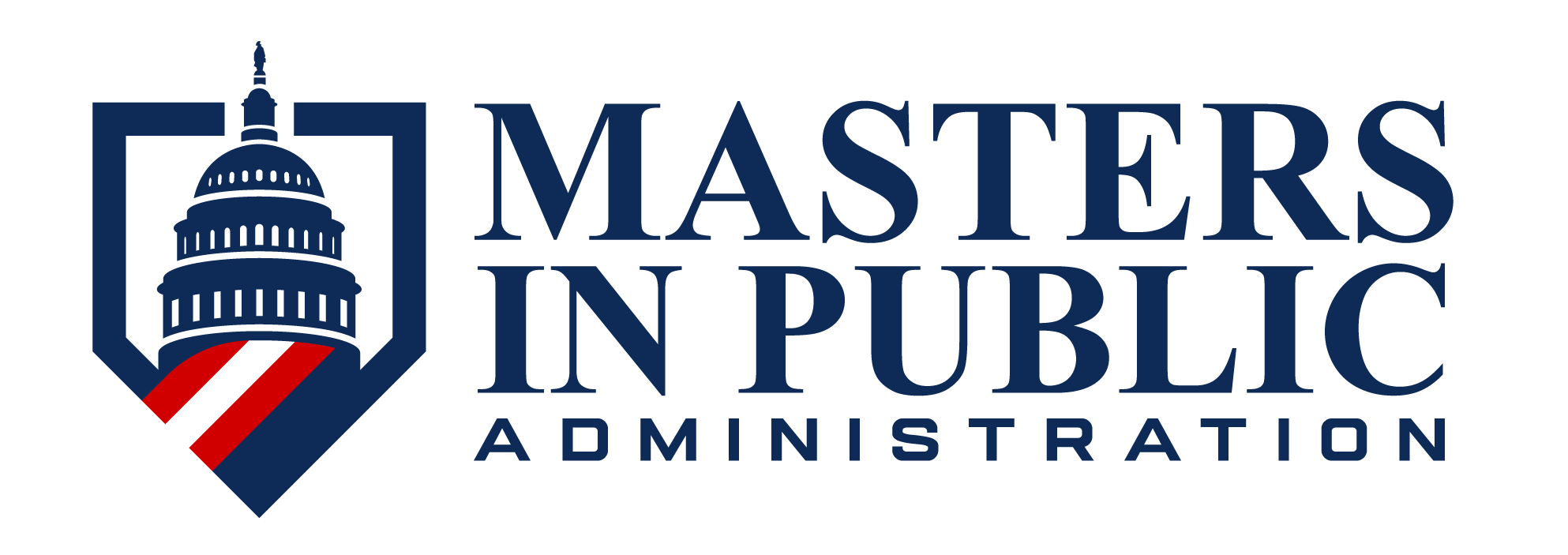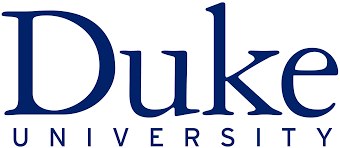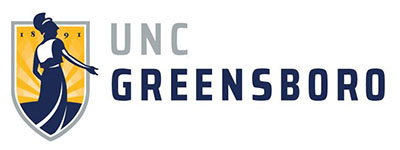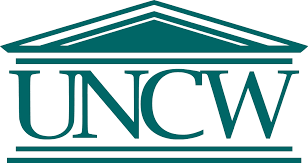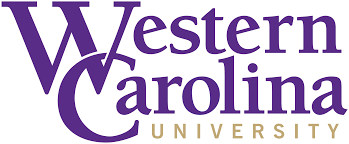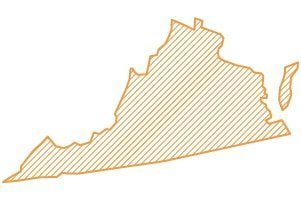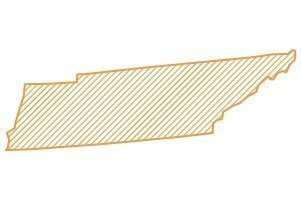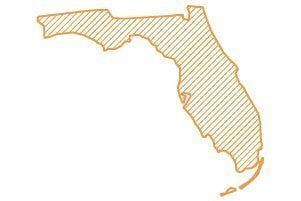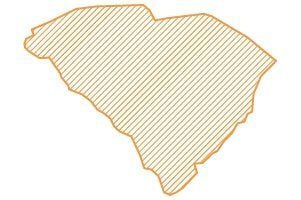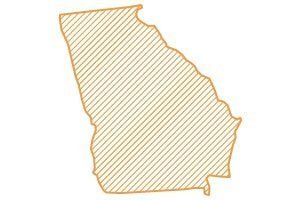Stepping into the realm of being a Public Administration graduate student in North Carolina reveals a distinctive blend of academic strength, regional charm, and unique chances for personal and professional growth. The state houses respected institutions like the University of North Carolina at Chapel Hill and North Carolina State University, each offering specialized programs in public administration. As a student, you’ll find yourself part of a diverse academic community, benefitting from the Southern hospitality that characterizes interactions both inside and outside the classroom.
Beyond the lecture halls, North Carolina’s natural beauty calls for exploration. The Blue Ridge Mountains provide a scenic backdrop for hiking adventures, while the state’s many lakes offer tranquil retreats. This mix of academic rigor with the serene surroundings creates an environment conducive to all-encompassing growth.
The state’s Southern culture adds a distinct flavor to the graduate student experience. Warm and welcoming, the locals contribute to a sense of community that extends beyond campus borders. Networking opportunities are plentiful as students engage in events hosted by professional organizations and tap into the rich pool of alumni connections, fostering relationships that can propel careers forward.
For those with an interest in urban experiences, the state capital, Raleigh, serves as a dynamic hub for government activities. Here, students can explore internships and employment opportunities, gaining firsthand experience in the intricacies of public administration. Conversely, those drawn to a more rural lifestyle will find themselves immersed in smaller communities, where the prevalence of local governments offers a closer look at grassroots governance.
North Carolina’s charm extends beyond academia, offering a variety of recreational activities catering to diverse interests. Whether it’s coastal outings, exploring historic sites, or simply indulging in the region’s renowned barbecue cuisine, there’s always something to discover outside of class.
In essence, being a Public Administration graduate student in North Carolina is not just about academic pursuits – it’s a holistic experience that blends the best of education with the warmth of Southern culture and the diverse opportunities presented by the state’s unique landscape.
MPA Programs in North Carolina
Achieving an MPA degree in North Carolina not only opens doors to fulfilling leadership roles within the public sector, nonprofit organizations, and private entities collaborating with government agencies but also offers a distinctive experience shaped by the state’s unique challenges and needs. North Carolina stands out for its array of MPA programs, providing aspiring professionals with a platform to specialize in public administration, policy analysis, and leadership that directly addresses the region’s specific complexities.
Aspiring public administrators in North Carolina benefit from a curriculum tailored to address the region’s distinct challenges, including rural-urban dynamics, environmental concerns, and socio-economic disparities. The programs emphasize practical skills, ensuring that graduates are well-equipped to navigate the intricacies of public service in a state known for its diverse communities.
Prospective students exploring MPA programs in North Carolina can choose from a diverse selection of 12 options, each tailored to accommodate different preferences and career aspirations. The state is home to esteemed public and private educational institutions that offer Master’s programs in Public Administration. A detailed overview of these programs, covering factors like accreditation, study modes, and costs, is available for reference here:
NASPAA-accredited MPA Programs
In North Carolina, the Network of Schools of Public Policy, Affairs, and Administration (NASPAA), a globally recognized accrediting organization, plays a pivotal role in evaluating and accrediting programs such as the Master of Public Administration (MPA) and Master of Public Policy (MPP). This accreditation process ensures that the highest standards in public administration education are met, involving a comprehensive assessment of curriculum, faculty qualifications, and program outcomes.
Highlighting the commitment to quality education, presently, 10 institutions in North Carolina have secured NASPAA accreditation for their MPA programs. This accreditation serves as a testament to their dedication to excellence and adherence to industry standards. For prospective students, NASPAA accreditation provides a reliable indicator of a program’s relevance, offering a strong foundation for a successful career in public administration.
Here’s an overview of the 10 NASPAA-accredited institutions in North Carolina, including estimated tuition costs calculated on a per credit hour basis:
Appalachian State University
- Boone, NC
- Online + Campus
Modality: Online/On-Campus
Credit Hours: 42
GRE: Required
Resident Tuition: $5,740 (per year)
Non-Resident Tuition: $16,247 (per year)
Online Tuition: $3,963 (per year)
Program Overview:
The MPA program at Appalachian is crafted to equip students with the knowledge, skills, and ethical values essential for effective management in public sector agencies and non-profit organizations at various government levels. Graduates hold key positions like town and county managers, economic developers, and agency directors. Since its establishment in 1988, over 400 students have completed the MPA degree. The program offers concentrations such as Administration of Justice, Not-for-Profit Management, Public Management, and Town, City, and County Management, catering to diverse career paths. Additionally, a Non-Profit Administration Graduate Certificate is available for specialized training.
Duke University
- Durham, NC
- Online + Campus
Modality: Online/On-Campus
Credit Hours: 30
GRE: Not required
Tuition: $12,000 (per semester)
Program Overview:
The Duke MPA integrates the analytical tools of a public policy degree with management and leadership skills from public administration programs. Tailored for professionals in the public, non-profit, and private sectors, including roles in consulting and social entrepreneurship, the program offers a purpose-built hybrid format with in-person residencies and online instruction. The curriculum includes core courses, a concentration in leadership, management, and ethics, and elective courses, totaling 30 credits. Unlike traditional programs, Duke’s MPA doesn’t mandate internships or research assistantships, accommodating working professionals.
East Carolina University
- Greenville, NC
- Online + Campus
Modality: Online/On-Campus
Credit Hours: 42
GRE: Not required
Resident Tuition: $264
Non-Resident Tuition: $994
Program Overview:
East Carolina University’s Master of Public Administration Program (MPA) addresses the high demand for skilled policy and management professionals in government, nonprofit, and international organizations. The program is tailored for both current professionals and pre-service students, fostering public management and policy skills. Faculty collaborate with students to cultivate the expertise needed for effective policy implementation in societal problem-solving. Through in-class activities, guided research projects, and community engagement, students gain insights into the needs and challenges of public service. The flexible curriculum accommodates current professionals by offering evening in-person classes and online options, allowing them to advance their careers. Pre-service students benefit from the opportunity to engage in professional activities while earning their degree.
North Carolina Central University
- Durham, NC
- Campus
Modality: On-Campus
Credit Hours: 42
GRE: Not required
Resident Tuition: $308
Non-Resident Tuition: $1,047
Program Overview:
The North Carolina Central University Master of Public Administration program focuses on training leaders in public service with a global perspective, promoting diversity, truth, and service for social equity. The program, available through traditional and executive tracks, prepares students for roles in government and the nonprofit sector, emphasizing ethical leadership and management skills. The 42-credit hour program includes specializations in Law and Society, Human Resources, Non-profit Management, Public Health Policy, and Urban and Regional Planning. With the Traditional Track spanning two years and the Executive Track completing in 18 months, students benefit from flexible options. The M.P.A. degree offers dual-degree programs with the NCCU School of Law and the NCCU School of Library and Information Sciences, providing diverse educational opportunities.
University of North Carolina at Chapel Hill
- Chapel Hill, NC
- Campus
Modality: On-Campus
Credit Hours: 39
GRE: Contingent on GPA
Resident Tuition: $642
Non-Resident Tuition: $1,658
Program Overview:
The UNC MPA program, situated within the School of Government, is a dynamic hub for public service education, training, and research. As part of the nation’s largest university-based organization for public officials, MPA students collaborate directly with expert faculty engaged in guiding, educating, and consulting with officials at local and state levels. The faculty’s real-world experiences enrich the classroom, allowing students to tackle complex interdisciplinary challenges they will encounter in their public service careers. The program’s mission is to prepare public service leaders and generate actionable knowledge to enhance governance. Emphasizing accountability, transparency, efficiency, and diversity, the MPA program is committed to instilling these values in the next generation of leaders.
University of North Carolina at Charlotte
- Charlotte, NC
- Campus
Modality: On-Campus
Credit Hours: 43
GRE: Contingent on GPA
Resident Tuition: $248
Non-Resident Tuition: $1,057
Program Overview:
The Gerald G. Fox Master of Public Administration (MPA) program focuses on providing professional training in public administration with accreditation from the National Association of Schools of Public Affairs and Administration (NASPAA). Emphasizing the analysis of political and administrative environments, the curriculum also delves into administrative decision-making approaches and the application of techniques in managing nonprofit organizations. The program employs diverse instructional methods to expose students to various public management approaches. Available on both full-time and part-time bases, classes are primarily scheduled in the evening, held at the main University campus and UNC Charlotte Center City, offering flexibility for students pursuing the MPA degree.
University of North Carolina at Greensboro
- Greensboro, NC
- Campus
Modality: On-Campus
Credit Hours: 39
GRE: Not required
Resident Tuition: $388
Non-Resident Tuition: $1,164
Program Overview:
Since 1976, graduates of UNCG’s Master of Public Administration (MPA) program have forged meaningful careers in diverse organizations, including local, state, and federal government agencies, nonprofit agencies, legislative staff positions, colleges, universities, consulting firms, and contract agencies. The program offers three concentrations—Nonprofit Management, Community and Economic Development, and Local Government Management—although selection is not mandatory. With flexible part-time or full-time enrollment options, classes are scheduled in the evenings and on Saturdays, accommodating students with internships and full-time jobs. Financial assistance, including graduate assistantships with tuition waivers, scholarships, and fellowships, is available. Recognized for its flexibility, networking opportunities, and diverse student body, UNCG’s MPA program stands out, boasting a job placement record exceeding 90% over the past several years.
University of North Carolina at Wilmington
- Wilmington, NC
- Online + Campus
Modality: Online/On-Campus
Credit Hours: 42
GRE: Not required
Resident Tuition: $276
Non-Resident Tuition: $1,120
Program Overview:
With a commitment to public and nonprofit education and management, the MPA program attracts students from diverse backgrounds, currently enrolling 65 students. UNCW and the Department of Public and International Affairs maintain high standards and codes of honor for enrolled students. The program focuses on learning competencies, emphasizing leadership, policy analysis and participation, critical thinking, problem-solving, decision-making, public values perspective, and effective communication and interaction in diverse settings. The faculty and staff are dedicated to preparing students for public governance and policy roles, equipping them with essential skills for effective leadership and decision-making in public service. The program has recently climbed nine spots in the U.S. News & World Report’s list of 2023 Best Graduate Schools.
North Carolina State University
- Raleigh, NC
- Campus
Modality: On-Campus
Credit Hours: 45
GRE: Not required
Resident Tuition: $669
Non-Resident Tuition: $1,779
Program Overview:
NC State’s Master of Public Administration (MPA) program distinguishes itself by offering flexibility in lieu of formal specializations. Students have the freedom to customize individualized public service specialties aligning with their interests, abilities, university strengths, and labor market demands. The MPA program provides elective coursework encompassing public management, nonprofit management, urban management, financial management, organizational leadership, policy analysis, and justice administration. Additionally, the department offers graduate certificates in nonprofit management and policy analysis. The Energy Policy Fellow Program (EPFP) stands out, offering one-year graduate funding, research mentorship, and professional experience in energy policy through a competitive fellowship. This program integrates a graduate stipend, research assistantship, and internship with the NC Clean Energy Technology Center.
Western Carolina University
- Cullowhee, NC
- Campus
Modality: On-Campus
Credit Hours: 39
GRE: Not required
Resident Tuition: $5,020 (per semester)
Non-Resident Tuition: $10,224 (per semester)
Program Overview:
The program, housed within the Department of Political Science and Public Affairs, emphasizes a combination of academic, practical, and multidisciplinary study, allowing students to apply learned concepts in real-world scenarios. Graduates have demonstrated remarkable success in securing positions in public service and advancing in their careers, with an extensive alumni network comprising town managers, nonprofit directors, professors, police officers, and other public servants. Taught by full-time professors and experienced public servants, the program generally enrolls 35-50 students, offering evening classes at the Biltmore Park Town Square instructional site in Asheville. he curriculum, requiring 39 credit hours, integrates public affairs theory and practice to enhance leadership, managerial, analytical, and communication skills.
Online MPA Programs
Attending a remote or online Master of Public Administration (MPA) program in the state of North Carolina offers numerous advantages for students. One key benefit is the flexibility these programs provide, allowing students to access course materials and lectures at their convenience. This flexibility is particularly valuable for MPA students who may be working professionals, enabling them to balance their studies with work and other commitments.
Moreover, online programs eliminate geographical constraints, making education accessible to a broader audience within and outside the state. The reduction in travel time and costs is an added perk, especially for those residing in areas where commuting to campus is challenging.
Engaging in a Master of Public Administration (MPA) program online contributes to educational equity by overcoming various barriers associated with traditional on-campus programs. The accessibility of online education is a key factor, breaking down geographical constraints and enabling individuals from diverse locations, including rural areas, to pursue their MPA. The flexibility offered by online programs accommodates a broad range of schedules and responsibilities, making it more inclusive for working professionals, parents, and those with multiple commitments.
Online MPA programs also facilitate networking through virtual forums and events, providing students with opportunities to connect with peers and professionals in the field. The customized learning environment, accessibility of digital resources, and integration of technology further contribute to a dynamic and engaging educational experience.
In the State of North Carolina, seven MPA programs offer a fully online learning option, with five of them being NASPAA accredited. Additional information on the remaining two unaccredited programs can be found here:
University of North Carolina at Pembroke
- Pembroke, NC
- Online
Credit Hours: 39
GRE: Contingent on GPA
Resident Tuition: $238
Non-Resident Tuition: $963
Program Overview:
The MPA program at the University of North Carolina at Pembroke (UNCP) is designed to prepare students for leadership roles in public and nonprofit sector organizations, as well as in industries with strong governmental interactions and regulations in the private sector. The program emphasizes “aggressive” career development, aiming to equip students to advance beyond their current positions. The MPA program at UNCP offers flexibility with a fully online option and includes four concentrations: Criminal Justice, Emergency Management, Health Administration, and General.
Strayer University – North Carolina
- Morrisville, NC
- Online
Credit Hours: 30
GRE: Not required
Tuition: $2,000 (per course)
Program Overview:
The curriculum focuses on ensuring the efficient, effective, and strategic use of resources in local, state, and federal governments. The value of a master’s in public administration lies in the skills acquired, including qualitative and quantitative analytical abilities, policy analysis and evaluation knowledge, citizenship skills, and an understanding of public administrators’ prescribed roles. The program allows flexibility in pacing, depending on the number of courses taken simultaneously.
Accelerated MPA Programs
In North Carolina, the usual timeframe for obtaining a Master’s in Public Administration (MPA) degree is around 2-3 years for full-time students and 3-4 years for part-time students. Nevertheless, specific programs in the state offer accelerated and dual-track alternatives, enabling students to fast-track their degree completion.
Completing an accelerated Master of Public Administration (MPA) program in North Carolina holds several advantages for both students and working adults. The abbreviated time frame of accelerated programs allows individuals to earn their MPA credentials in a shorter duration compared to traditional programs, offering a quicker path to career advancement.
This efficiency is particularly advantageous for working adults aiming to bolster their skills and credentials without committing to a protracted academic timeline. Accelerated programs in North Carolina often integrate practical experiences and real-world applications, expediting the acquisition of additional professional experience. This hands-on approach not only accelerates learning but also enhances the practical relevance of the education received, proving invaluable for those eager to apply theoretical knowledge directly to their current or future roles.
Furthermore, the cost-effectiveness inherent in accelerated programs, characterized by reduced tuition fees and fewer associated expenses, renders this educational path financially viable for both students and working professionals. In essence, an accelerated MPA program in North Carolina aligns seamlessly with the needs of individuals seeking a swift, efficient, and impactful educational experience to propel their careers forward.
At Appalachian State University, undergraduates can combine credits with their graduate degree and finish the MPA program in just one year. At North Carolina Central University, full-time students with previous career experience can take executive-track courses and finish in roughly one year. At Duke University, full-time MPA students can complete the degree in 15 months.
Affordable MPA Programs
Tuition affordability plays a pivotal role for students considering enrollment in a Master of Public Administration (MPA) graduate program in North Carolina, given the significant impact it has on various aspects of their education and overall well-being.
In a state where students often grapple with the burden of student loans, an affordable tuition structure becomes a determining factor in the decision-making process. North Carolina’s students are keenly aware of the financial challenges associated with pursuing higher education, and a more affordable MPA program can alleviate the financial strain on individuals who may be working professionals or seeking to balance their studies with other commitments.
Moreover, the affordability of tuition directly influences the accessibility of education, ensuring that a broader spectrum of individuals can pursue an MPA without facing insurmountable financial barriers. Additionally, North Carolina’s cost of living and housing considerations further underscore the importance of affordable tuition, as students strive to manage overall expenses while pursuing their graduate education.
By prioritizing tuition affordability, MPA programs in North Carolina contribute to fostering a more inclusive and accessible educational environment, acknowledging the unique financial landscape of the state and the diverse needs of its student population.
North Carolina offers many options for both state residents and non-residents for affordable tuition rates. East Carolina University and North Carolina Central University both offer low tuition rates to state residents at $264 and $308 per credit hour, respectively.
For online programs, the University of North Carolina at Pembroke offers resident tuition at $238 per credit hour and $963 per credit hour for non-resident tuition. The University of North Carolina at Wilmington is similar, offering resident tuition at $276 per credit hour and $1,120 per credit hour for non-resident tuition.
All MPA Programs in North Carolina
What Types of Careers Can I Pursue With an MPA Degree in North Carolina?
An MPA (Master of Public Administration) degree opens up a range of career opportunities in the public and non-profit sectors. In the state of North Carolina, MPA graduates can pursue various roles in government, healthcare, education, and nonprofit organizations.
North Carolina offers unique opportunities for public administration careers, with variations between rural areas and the state capital, Raleigh. Additionally, the political landscape plays a role in shaping specific career paths. Here are some public administration careers that showcase these distinctions:
Rural Area Public Administration Careers:
- Community Development Specialist: Focused on rural communities, these specialists work to improve infrastructure, economic development, and quality of life in smaller towns.
- Agricultural Extension Agent: Working with local farmers and communities, extension agents in rural areas help implement agricultural programs and disseminate research-based information.
- Rural Health Coordinator: Addressing healthcare access challenges, coordinators work on programs to enhance healthcare services in rural regions.
State Capital Public Administration Careers (Raleigh):
- State Agency Director: Leading state agencies in areas like transportation, education, and environmental protection, directors in Raleigh play a crucial role in shaping statewide policies.
- Legislative Analyst: Working closely with state legislators, analysts in the capital assess proposed bills, conduct research, and provide insights on policy decisions.
- Public Affairs Manager: Managing communications and public relations for state agencies, public affairs managers in Raleigh navigate the complex political environment.
Politics of the State and Associated Careers:
- Government Relations Specialist: In Raleigh, professionals may engage in lobbying, advocacy, and relationship-building with government officials to influence policy decisions.
- Political Strategist: Working with political campaigns or advocacy groups, strategists contribute to the political landscape by shaping messaging and campaign strategies.
- Policy Advisor: Advising elected officials or government leaders on policy matters, these individuals help navigate the political dynamics to implement effective governance.
North Carolina’s political landscape, being a swing state with a diverse population, creates a dynamic environment for public administration careers. The state’s rural areas often face unique challenges, such as economic disparities and limited access to services, leading to specialized roles in community development and healthcare.
